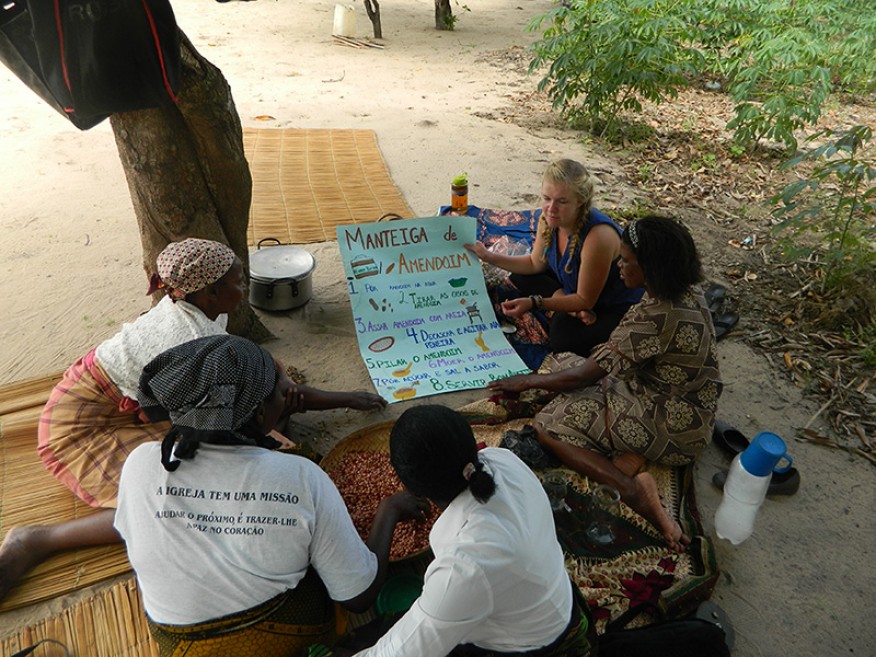In 2011, Colleen Huysman was one of two students in the inaugural cohort of the Peace Corps Master’s International Program, a joint venture with U-M SSW. The program allows students interested in working with children and youth to incorporate 27 months of Peace Corps service into their MSW program and earn their degree in four years.
As part of the criteria for MI, Huysman took two semesters of MSW study in Ann Arbor prior to her departure for Mozambique, where she has been since June 2012. Originally scheduled to return to U-M in August, Huysman has chosen to extend her service in Mozambique for another 12 months, and will instead return to U-M in August 2015. Starting in July, she will be the Peace Corps National Malaria Activities Coordinator in the city of Maputo, Mozambique’s capital.
“I’m very excited to have this opportunity to continue my work here in Mozambique. U of M was extremely supportive of my decision to stay and defer school for a year. The knowledge and experience that comes with the Master’s International program has given me the opportunity to directly apply what I learned in my first year of graduate school to the work I’m doing here in Mozambique, and when I return to U-M, I’ll be able to relate the real-world experiences I’ve had to the curriculum in the classroom.”
Over the course of the last two years in Mozambique, Huysman has worked primarily with two organizations: CACHES, which stands for Criancas Artistas Contra HIV e SIDA (Artistic Children Against HIV and AIDS), and the Elizabeth Glaser Pediatric AIDS Foundation at the Rural Hospital of Chicumbane, where Huysman lives.
Currently Huysman facilitates an HIV-positive children’s support group at the hospital. She also supports several GAAC groups (Grupos de Apoio a Adesão Comunitária), also known as Community Adherence Support Groups. Implemented by the Mozambican Ministry of Health in 2010, the GAAC initiative is a much-needed, low-cost solution for improving adherence to antiretroviral (ARV) treatment in rural areas of Mozambique. Groups of up to six HIV-positive patients rotate monthly responsibility for traveling to health facilities to pick up antiretroviral (ARV) medication for all members.
The Peace Corps motto is right; it will definitely be ‘the toughest job you’ll ever love.’ But the key is that you WILL love it.
Benefits of the Peace Corps MI program include language training, travel costs to an from the country of service, overseas living and housing expenses, medical and dental coverage, vacation time, and transition funds of approximately $7,000 upon completion of service.
“The Peace Corps isn’t for everyone. There are stresses and frustrations that I’ve encountered along the way here, but despite the challenges, I wouldn’t change a thing. If you have an open mind and are up for an adventure, you will learn more about yourself, about others, and about the world we live in than you could ever learn in a classroom.”
